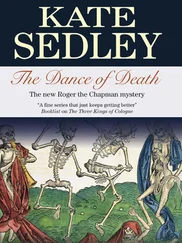Kate Sedley - The Plymouth Cloak
Здесь есть возможность читать онлайн «Kate Sedley - The Plymouth Cloak» весь текст электронной книги совершенно бесплатно (целиком полную версию без сокращений). В некоторых случаях можно слушать аудио, скачать через торрент в формате fb2 и присутствует краткое содержание. Год выпуска: 1992, ISBN: 1992, Издательство: Harpercollins, Жанр: Исторический детектив, на английском языке. Описание произведения, (предисловие) а так же отзывы посетителей доступны на портале библиотеки ЛибКат.
- Название:The Plymouth Cloak
- Автор:
- Издательство:Harpercollins
- Жанр:
- Год:1992
- ISBN:9780061043208
- Рейтинг книги:3 / 5. Голосов: 1
-
Избранное:Добавить в избранное
- Отзывы:
-
Ваша оценка:
- 60
- 1
- 2
- 3
- 4
- 5
The Plymouth Cloak: краткое содержание, описание и аннотация
Предлагаем к чтению аннотацию, описание, краткое содержание или предисловие (зависит от того, что написал сам автор книги «The Plymouth Cloak»). Если вы не нашли необходимую информацию о книге — напишите в комментариях, мы постараемся отыскать её.
The Plymouth Cloak — читать онлайн бесплатно полную книгу (весь текст) целиком
Ниже представлен текст книги, разбитый по страницам. Система сохранения места последней прочитанной страницы, позволяет с удобством читать онлайн бесплатно книгу «The Plymouth Cloak», без необходимости каждый раз заново искать на чём Вы остановились. Поставьте закладку, и сможете в любой момент перейти на страницу, на которой закончили чтение.
Интервал:
Закладка:
But you had recognized Philip as soon as you saw us both in the courtyard. I believe it was in that moment that the idea of taking revenge on him sprang into your mind. You had formed no clear plan, except to feel that a second means of egress from the room could only prove of value. Am I right?' Janet's level gaze met mine.'I thought you a bright young man when I first set eyes on you, but that was an injustice. I see now that you are even cleverer than I suspected.' She got up, went to the kitchen door, opened it and asked something of one of the maids. When she returned to her seat at the table, she said: 'There is as yet no sight of the Sheriff's officer and Thomas Sawyer, so tell me what you found out from Silas Bywater.'
'Let me go back further,' I said, 'to my first meeting with Philip Underdown last Thursday.' Was it indeed only five days ago since that meeting? It seemed like a lifetime away.
'He told me then, without shame or apology, of his life before becoming a royal messenger; that he had been a trader of, among other commodities, human flesh; unfortunate, dwarfish children who would never grow to full height and whose parents were anxious to be rid of them, or who saw them as the means of a little easily-come-by wealth. I wondered how he and his brother could find enough such children to make money at the trade, and he said that there were always ways and means if one knew them. At the time, I had no notion of what he meant.'
'But you do now?'
'Yes. Silas Bywater told me. My mother, God rest her soul, was wrong, but not so very wrong, in her belief that knotgrass contains a poison which will kill you.' 'No,' Janet answered in a voice which was almost inaudible. 'Not so very wrong. An infusion of knotgrass and daisies, if taken in sufficient quantities, stunts children's growth, making them dwarfish. I have no doubt that that is what happened to my son after he was stolen from me, any more than I have any doubt who was responsible. I have listened to you, and now I ask you to listen to me while I tell you my side of the story.'
Janet Overy had been a widow for, she thought, about five years when her son disappeared. As she had told us, her husband had been drowned at sea a week before young Hugh was born. A fisherman, the only thing of value he owned, his boat, had gone down with him, and his wife and child had been left destitute. Janet's hard and unremitting work as a seamstress had saved them both from starving, but she had grudged neither time nor labour as long as her beautiful son wanted for anything that she could possibly give him.
She had, from time to time, gone into Plymouth to buy those things which she was unable to grow or raise in her small patch of garden, and it was on one of these occasions that she had first seen Philip Underdown and his brother.
'They were difficult men to miss,' she said. 'Bold, handsome, dark, striding about the wharves as if they owned them, overseeing the loading of their ship, the Speedwell.
Then I would not see them for a year or more, and I learned that they traded out of other ports. Bristol and London. But they always turned up again eventually.'
She knew nothing about the two brothers other than what she saw and was always too busy to stop and gossip, being acquainted with very few people in the city. She had no idea of the kind of merchandise the Speedwell carried, nor would she have thought much of it, apart from a natural repulsion, if she had. Her little Hugh was a lovely child, his young body healthy and perfectly formed, with none of the deformities which so often, and so unhappily, afflicted other children.
And then, on a fine, sunny day not long after his fifth birthday, he disappeared. Janet had been busy with her sewing and had shooed her son outdoors to play, where he would not be continually under her feet. When she went to call him for supper an hour or so later, there was no sign of him anywhere. She had called and searched until it grew dark, but never found him. The following morning, as soon as it was light, she roused her neighbours to join in the hunt, but to no avail. Hugh had vanished.
The distraught mother had gone south as far as Plymouth and north to Tavistock, but all the time hope of discovering her child was fading. And then one day she had fallen in with an old, lame beggar who recollected seeing two men in the vicinity of Janet's village about the time of Hugh's disappearance.
'He remembered because it was two weeks after Easter and the hocking had begun. He saw two men on horseback, one of them with a fair-haired boy held before him in the saddle. The child was crying bitterly and the man silenced him with a blow.'
The beggar's description of the two men immediately brought Philip Underdown and his brother to mind and Janet set out once again for Plymouth. When she got there, however, she found that the Speedwell had set sail for Genoa some weeks earlier with both men and their cargo aboard. It was then, asking among the freight-loaders of the Sutton harbour quayside, that she had learned of their trade in dwarfs. But she had dismissed the intelligence as of no interest to her. It was not until years later, when she had found sanctuary as housekeeper at Trenowth Manor and in its tranquillity regained a little of her peace of mind, that she learned, quite by chance from a mendicant friar, of the fate which had probably befallen her child.
'He told me,' Janet said, 'of cases he had known where, because the demand among the nobility of every country was now so great for dwarf attendants, and the supply of truly stunted boys and men insufficient, the traders stole healthy children who were chained up for months, sometimes for more than a year, in dark cellars, half-starved and forced to drink copious infusions of knotgrass and daisies, which inhibited their natural growth. He knew Plymouth, and I asked him if he had ever heard such a thing whispered about the masters of the Speedwell. He admitted reluctantly that he had, although nothing had ever been proved against either of the Underdown brothers. And if they did steal children, where did they keep them?'
'The cellars of the Turk's Head,' I interrupted with conviction. 'That was where they kept them. And no doubt there were inns and landlords in London and Bristol equally willing to oblige for a share in the profits.'
It was small wonder, I reflected, that inns and ale-houses had such a bad reputation when often it was so richly deserved; unsurprising that, twice-yearly at the manorial courts, villagers were asked to name those of their number who 'haunted taverns'. I recalled an inn I had known in London two years previously, and shivered at the recollection.
After the friar had left, Janet had visited Plymouth again, only to learn that the younger of the two Underdowns was dead and no one knew what had become of the elder. The only thing certain was that he no longer traded from the city.
'I had to force myself to forget him and his brother. No doubt remained in my mind that they were indeed the men who had taken away my son, nor about what they had done to him. But one of them was beyond my reach in Hell, and the other would one day follow him. That was my consolation.
And then…'
'And then, yesterday morning, you saw him standing in the courtyard, self-satisfied and prosperous. It was more than you could stomach.'
Janet nodded. 'I made up my mind in that very first moment that I was going to kill him. The rest you know.' 'You persuaded him to meet you, very late at night, down by the river.'
She smiled. 'I didn't have to persuade him. He played straight into my hands. I had made it plain to him at breakfast that I liked him, and whatever you might think, lad, I'm neither so old nor so decrepit that a man can't fancy me.' I blushed that she should have read my mind so easily. 'He was a man who liked women, that was obvious to someone as experienced as I am, and would need entertainment if he were to remain at Trenowth for any length of time. I did not think he would bother Isobel. He had taken Edgar's measure and Philip Underdown was a man who treasured the wholeness of his skin. So I was not surprised when he appeared in the kitchen yesterday moming' 'Having rid himself of me with the story that he had seen from the bedchamber window someone lurking in the trees.' ‘He put his arm about my waist and kissed me. I put up a little show of indignation for the sake of the girls, then sent them on errands to other parts of the house. Master Underdown and I drank ale together and soon came to an understanding — or so he thought. He was somewhat nonplussed by my insistence on meeting him outside the house instead of in the comfort of my room, but I told him I dared not risk discovery as I was being courted by Alwyn. He accepted the lie without further question, and also submitted to my request that we each make our separate way to the trysting-place in case, by ill chance, we were seen. I could let myself out by the wicket gate because I hold the key, but I suggested that, unless he felt himself to be too old or unfit, he climbed out of the window by the vine. There would then be no risk of both of us being spotted crossing the courtyard by some sleepless soul.'
Читать дальшеИнтервал:
Закладка:
Похожие книги на «The Plymouth Cloak»
Представляем Вашему вниманию похожие книги на «The Plymouth Cloak» списком для выбора. Мы отобрали схожую по названию и смыслу литературу в надежде предоставить читателям больше вариантов отыскать новые, интересные, ещё непрочитанные произведения.
Обсуждение, отзывы о книге «The Plymouth Cloak» и просто собственные мнения читателей. Оставьте ваши комментарии, напишите, что Вы думаете о произведении, его смысле или главных героях. Укажите что конкретно понравилось, а что нет, и почему Вы так считаете.












